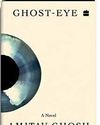Denemek ALTIN - Özgür
WINNING AGAINST CANCER
Reader's Digest India
|February 2023
THESE BREAKTHROUGHS ARE REASONS FOR REAL HOPE

A CANCER DIAGNOSIS NO longer means what it used to. Just a few decades ago, the survival rate beyond five years was less than 50 per cent. Now, nearly 70 per cent of those who get cancer survive that long, and that proportion is set to rise. Why? Because, more than ever, chemotherapy and radiation, once the only heavy hitters of cancer treatment, are being paired with or replaced by a slate of new drugs and treatments.
For example, the first medication for what was previously considered an 'undruggable' lung cancer mutation was recently approved in the United States, Canada, Europe, and the UK. And a brand-new precision chemotherapy drug delivered directly to breast cancer tumour cells is giving hope to patients with the aggressive HER2-positive form of the disease.
An even bigger newsmaker has been the promise of a treatment called immunotherapy, as researchers around the world have discovered ways to harness the body's own immune system to battle cancer cells.
Also driving hope is a focus on prevention. Decades of research and public education have led to greater awareness of how lifestyle changes can reduce our risk of developing cancer. According to an article from the journal Pharmaceutical Research and published by the National Institutes of Health, 90 per cent to 95 per cent of cancers can be attributed to environment and lifestyle, rather than to genetic factors.
Here are some of the strides scientists are making against cancer.

PREVENTION
HPV VACCINE
Bu hikaye Reader's Digest India dergisinin February 2023 baskısından alınmıştır.
Binlerce özenle seçilmiş premium hikayeye ve 9.000'den fazla dergi ve gazeteye erişmek için Magzter GOLD'a abone olun.
Zaten abone misiniz? Oturum aç
Reader's Digest India'den DAHA FAZLA HİKAYE

Reader's Digest India
Speaking of History by Romila Thapar, Namit Aroram, Penguin Random House, India
Romila Thapar is one of India's most accomplished historians, her work on ancient India being particularly well-received and a part of university curricula around the world.
1 min
December 2025

Reader's Digest India
ME & MY SHELF
Ranjeet Pratap Singh is the co-founder and CEO of Pratilipi, the largest Indian language digital storytelling platform with over 9,50,000 writers in 12 languages and over 30 million monthly readers. Singh was part of the Forbes 30 Under 30 list in 2018.
3 mins
December 2025

Reader's Digest India
HUMOUR in UNIFORM
While our frigate was taking on supplies at sea from a British ship, I noticed three of their sailors pointing to our destroyer’s squadron crest, which was proudly mounted on the side of our ship.
1 min
December 2025

Reader's Digest India
Obeshwar by A. Ramachandran, Oil on canvas, 2022 78 x 192 inches
One of independent India’s preeminent artists, A. Ramachandran (born in 1935), passed away last year, following a long and distinguished career.
1 min
December 2025

Reader's Digest India
Memes for Mummyji by Santosh Desai, HarperCollins India
Santosh Desai, one of Indian advertising's leading lights for over two decades, has a well-earned reputation for spotting cultural trends in Indian cities, as evidenced by his previous book Mother Pious Lady.
1 min
December 2025

Reader's Digest India
Ghost-Eye by Amitav Ghosh, HarperCollins India
In Amitav Ghosh's first novel since Gun Island (2019), we meet a young Marwari girl named Varsha Singh living in Calcutta in the 1960s with her strictly vegetarian family.
1 min
December 2025

Reader's Digest India
"Good Songs Stay Written ..."
Rock legend Bruce Springsteen on music as a time machine, responsibility in the family, and the situation in the USA
3 mins
December 2025

Reader's Digest India
WHEN COMPUTERS WERE FEMALE
THE PIONEERS OF PROGRAMMING WERE SIX WOMEN
6 mins
December 2025

Reader's Digest India
I Am My Mother's Older Brother
As the onset of dementia reshapes their world, a daughter becomes her mother's carer and keeper while navigating grief, duty, and unwavering love
7 mins
December 2025

Reader's Digest India
Small Changes Big Results
While motivation gets us started, discipline is what keeps us going.
3 mins
December 2025
Translate
Change font size
